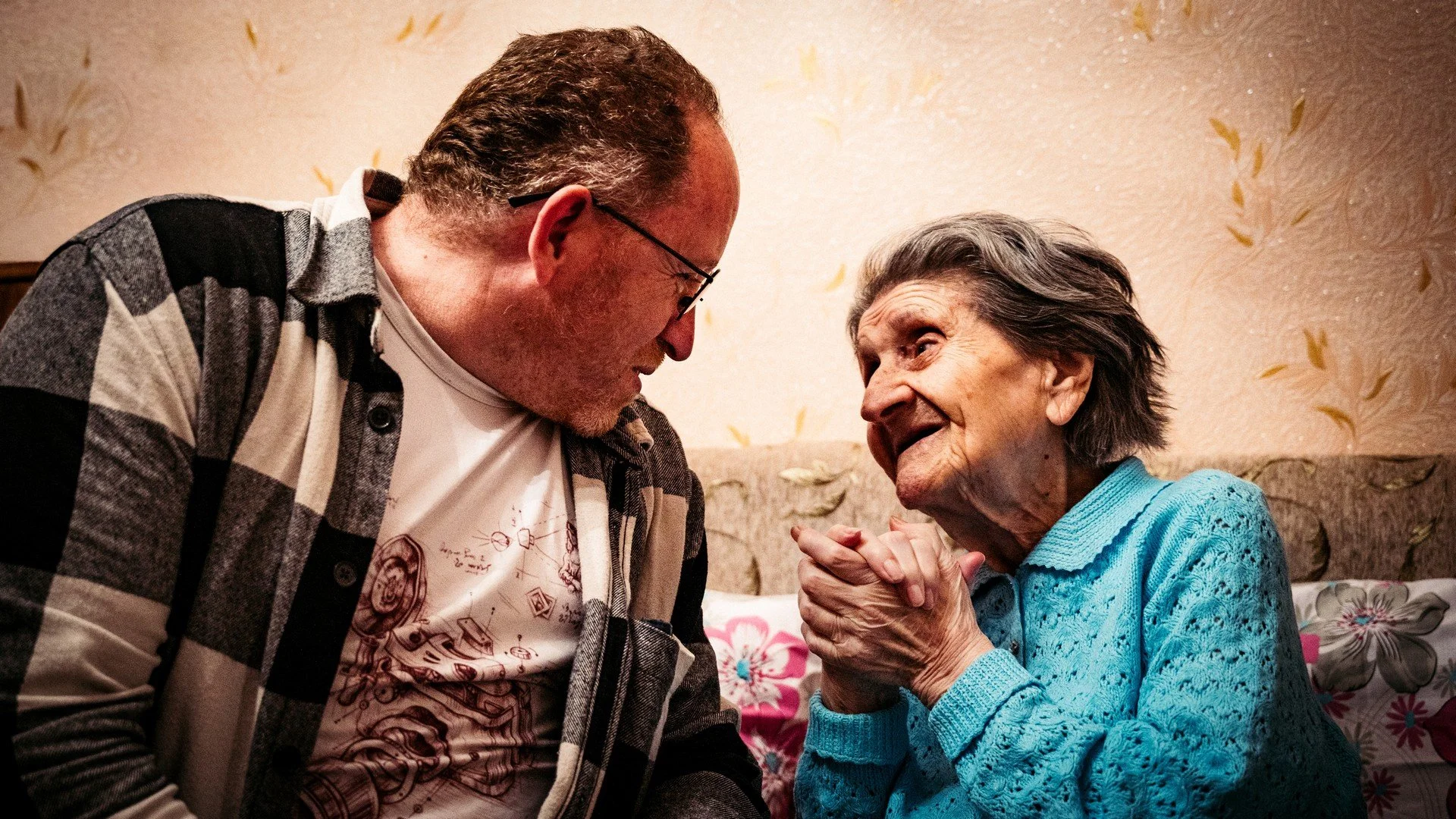When Nobody’s Left to Ask
How to start preserving family history before it’s too late.
The other night at a party, I overheard someone say: “There was an amazing story about my grandparents moving from the shtetl of Malin to Korosten. But now there’s nobody left to ask.”
That sentence stayed with me. It holds the very reason I create legacy films: once a voice is gone, there’s no second chance. Family history is fragile — stories live inside people, and when they disappear, we’re left with regret: “I wish I had asked. Now it’s too late.”
Many of us carry fragments: “I think my grandmother came from a village…” or “My father once mentioned fleeing during the war…” But without the voices that lived those journeys, those fragments become ghosts of stories — fading until they’re little more than questions without answers.
What I’ve learned filming elders is this: the further back the memory, the sharper it often becomes. A grandmother may forget her breakfast, yet recall in vivid detail all the stops a train made on the way to evacuation 80 years ago. This stage of life can be our last chance to capture those details — before they vanish for good.
These are the kinds of memories that surface when we take the time to listen. Recently, Yulia, 88, told me in an interview:
“I remember the bombings, and I remember standing in line with my mom for bread when a piece of shrapnel hit my eye. I remember how I screamed. I was 4 years old.”
She even remembered throwing a shoe into the river as a child, just to hear the sound it would make — a daring act during wartime, when new shoes were nearly impossible to get.
In another interview, Betya, 93, shared her family’s evacuation to Tashkent:
“Suddenly, after months of starvation, we were given so much food. That hot flatbread is something I’ll never forget. I remember my little brother crying, ‘Bread! Bread! Bread!’”
Valentina in her apartment during the interview session
And Valentina, 83, shared how stories themselves became a lifeline:
“We didn’t have toys. Our only distraction from hunger and cold was listening to stories from my mom and sister. That’s why I know so much about our family’s suffering.”
For me, her words capture the essence of this work. Stories are testimonies, lessons, and comfort. When recorded, they become more than fragile recollections; they become a legacy that future generations can return to again and again.
So how can you capture stories like these in your own family?
How to start preserving family history
If you still have someone in your life with stories untold, ask. Turn on your phone, hit record — or simply sit with a notebook. Capture what you can. You’ll be surprised at how willing elders are to talk. You may even feel that this conversation was long expected. Here are my 10 tips to guide it:
Begin from genuine interest. The most powerful stories come when the other person feels truly heard. Don’t think of it as “an interview” — think of it as curiosity and care. Set aside your assumptions, lean in, and show that you want to know. Your attention is what opens the door.
Create a welcoming space. Pour some tea, sit comfortably, and minimize distractions.
Ease in gently. Begin with simple life facts — where they grew up, favorite childhood food, first job. This helps both of you tune into “long conversation” mode. Feeling awkward and nervous at first is normal — this kind of dialogue can feel light-years away from everyday communication. Even I, after conducting thousands of interviews, felt it when I first sat down to interview my mom.
Don’t overthink. You don’t need a perfect list of questions. Just listen. Let the conversation flow and follow up on what you hear.
Respect boundaries. Some topics may be too painful or private. If someone resists, don’t push — stay with what they do want to share. That respect builds trust.
Go deeper. Once you’re both in the zone, gently ask about feelings behind the facts. For example: “You mentioned your dad left when you were 10. Do you remember what you felt that day?”
Ask open questions. If you want stories, avoid yes/no questions. Instead of “Did you play with your neighbors?” ask: “What games did you love playing with your neighbors?”
Pro Tip: Embrace the pause. This one comes from years of professional experience and may feel unnatural at first — but it works. After you hear a meaningful story, resist the urge to jump in with another question. Let the silence hang. Often, what follows that pause is the most raw, unexpected, and powerful part of the story.
End with care. These conversations can be emotional. Stay empathetic, but remember your role is to comfort — not to ask for comfort. Always end with gratitude, and make sure your final question is: “Is there anything you’d like to tell that I didn’t think to ask?”
Preserve what you’ve captured. Back up recordings and label them clearly so they don’t get lost. Share them with family — you may be met with tears and gratitude. Even a simple voice memo, stored safely, can become an irreplaceable heirloom.
Would you like help turning a conversation like this into a deep, cohesive film — something crafted to last for generations? If so, I’d be honored to talk with you.
But don’t wait. No story is ordinary — and when they vanish before anyone ever hears them, that’s the real tragedy.

